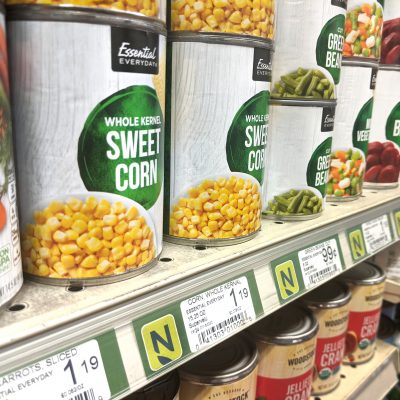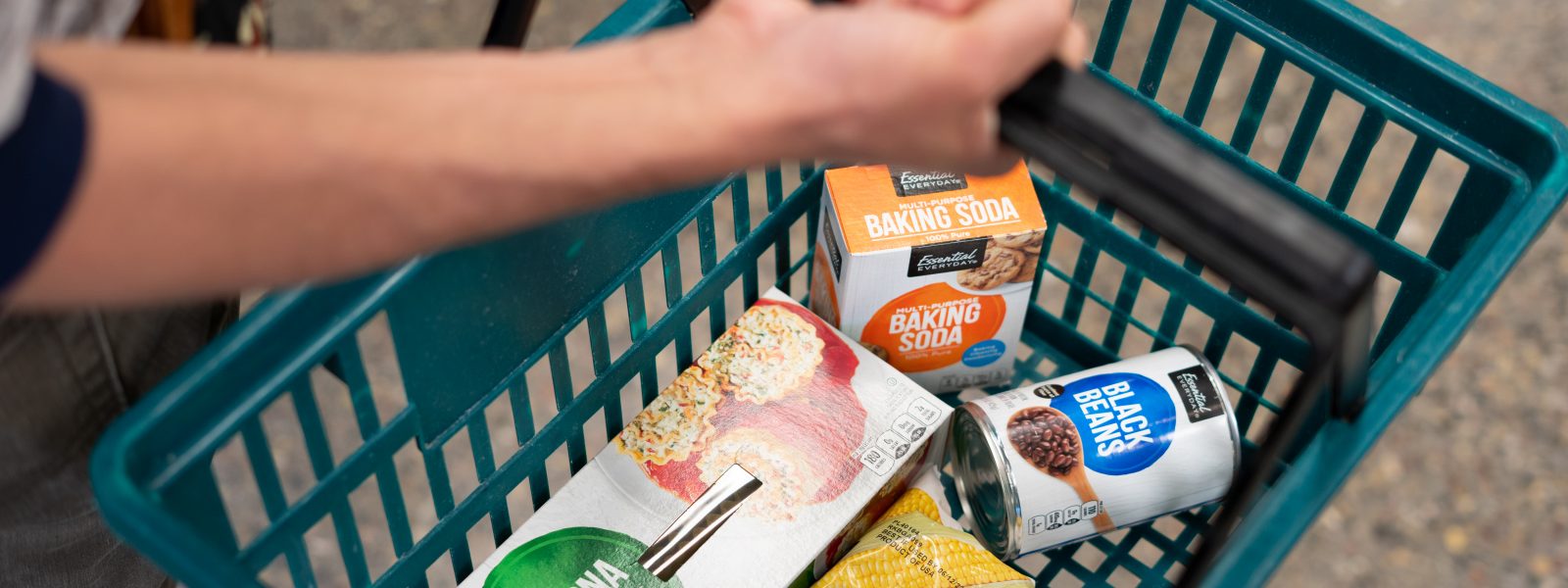Co-ops are a way for people to come together to meet common needs. Our community is navigating pandemic, economic challenge, and social uprising. Needs look different than they did even as recently as 2019. To expand food access to more community members, we are bringing in a small assortment of competitively priced conventional products. Conventional groceries are commonly available foods that meet more basic standards than those required to label food as organic or natural. We know that there are members of our community who may rely on these foods as a key way to ensure they remain able to eat. There are also folks who may wish to avoid these products. Others may selectively choose conventional products as an occasional best fit for their household’s needs. At Seward Co-op, we are stepping up to meet these evolving needs in our co-op community.
For years, Seward Co-op has carried a limited assortment of conventional groceries on our shelves in order to be able to participate in the Women, Infants and Children (WIC) Federal food assistance program. Both the WIC program and our current expansion of the conventional grocery selection are to assist everyone in our community to be able to maintain access to food.
 Most of the new items you’ll soon see on our shelves are Essential Everyday brand, from Supervalu. Primarily these will be basic pantry items in the packaged grocery aisles and are labeled as an expansion of our existing Nourish program. The community unrest and destruction that followed the murder of George Floyd meant that south Minneapolis lost a number of grocery stores. There are countless community organizations and mutual aid efforts working to fill the gaps in our community. While getting groceries to the people who need them is not the sole responsibility of Seward Co-op, we remain committed to ensuring our community has access to food. Food access has to come first in our work to sustain a healthy community.
Most of the new items you’ll soon see on our shelves are Essential Everyday brand, from Supervalu. Primarily these will be basic pantry items in the packaged grocery aisles and are labeled as an expansion of our existing Nourish program. The community unrest and destruction that followed the murder of George Floyd meant that south Minneapolis lost a number of grocery stores. There are countless community organizations and mutual aid efforts working to fill the gaps in our community. While getting groceries to the people who need them is not the sole responsibility of Seward Co-op, we remain committed to ensuring our community has access to food. Food access has to come first in our work to sustain a healthy community.
Seward Community Co-op began in 1972 on a back porch in Cedar Riverside in response to a need in the community than no one else was meeting. At that time, the need was for natural, unprocessed, and organic food. The world of 2020 looks very different than the world of 1972. One thing that remains constant is Seward Co-op’s commitment to meet the needs of our community.
We’re proud of how quickly our staff implemented many changes this spring, which were required to keep community members safe while shopping at the co-op in the midst of a pandemic. We limit the number of shoppers in the stores, offer online shopping and curbside pick-up, and reserve the opening hour for high-risk shoppers to get the goods they need safely. Now as the year goes on, we believe the next level of change is an adjustment to the items available on our store shelves.
In 2020, as natural foods have become more widely available, we are still looked to as a leader in natural foods retailing. Our Community Foods program propels our work as a national leader in supporting small, local, cooperative, inclusive and sustainable producers. We work with literally hundreds of suppliers to ensure that we have great food from producers who are treated fairly. This diversity of sourcing has also helped us to maintain supply through the pandemic. Seward Co-op will continue to expand our purchases from Community Foods producers, even as we add some additional conventional options in our grocery aisles. We hope that by adding more choices at a variety of price-points, we will be meeting the needs of more people in our community.
